Contact Us
Faculty and Staff
Jump to: Anthropology | Global Religions
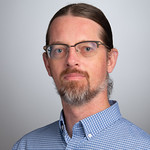
Dr. Michael Baltutis, Chair
Associate Professor
Office: Swart 309
Email: baltutim@uwosh.edu
Office Hours/Fall 2023: Monday/Wednesday/Friday 12:40pm-1:40pm or by appointment
Education:
Ph.D.,University of Iowa 2008, Religious Studies
B.A.,University of Wisconsin Milwaukee, Philosophy
Dr. Michael Baltutis is an Associate Professor of Global Religions at the University of Wisconsin Oshkosh. He teaches Religious Ritual, Hinduism and Religion in South Asia.
Anthropology

Dr. Adrienne Frie
Associate Professor
Office: Harrington 303B
Phone: (920) 424-1365
Email: friea@uwosh.edu
Office Hours/Fall 2023: No office hours this semester.
Education:
Ph.D., University of Wisconsin-Milwaukee
M.A., University of Chicago
B.A., University of California San Diego
Adrienne Frie is an anthropological archaeologist whose research specialties include prehistoric Europe, human-animal relations, and prehistoric art. Dr. Frie’s ongoing research is focused on Iron Age Slovenia, where she investigates how animal depictions and faunal remains provide insight into prehistoric interactions with and ideas about animals. This research is multidisciplinary, and in addition to archaeological evidence takes into account animal behavior, local environments, and the socioeconomic structures surrounding animal husbandry and other human-animal interactions.
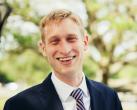
Dr. Kevin Garstki
Teaching Assistant Professor
Office: Swart 312
Email: garstkik@uwosh.edu
Office Hours/Fall 2023: Wednesday 9:ooAM-11:00AM or by appointment
Education:
Ph.D., University of Wisconsin-Milwaukee
M.A., University of Chicago
B.A., University of Illinois at Urbana-Champaign
Kevin Garstki is an anthropological archaeologist whose research focuses on the impact of digital technology on modern archaeology, as well as the effect of emerging technology on prehistoric societies. He is a prehistoric European archaeologist who has worked in Cyprus, Ireland, the Czech Republic, Slovenia, and North America. His doctoral research centered on the organization of early iron production in Iron Age Ireland. Dr. Garstki’s current research focuses on the critical use and reuse of digital archaeological data, specifically using 3D visualization technologies to enhance the documentation, research, and archiving of material heritage and its use in public outreach. He has worked for the last eight years as director of digital imaging for the Athienou Archaeological Project in Cyprus and is the co-director of the Wolves and the Caesars (WAC) archaeological field school in Knežak.
For more information on Kevin’s research: http://kevin-garstki.com/archaeology/
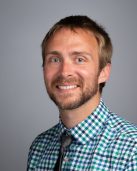
Dr. Jordan Karsten
Associate Professor
Office: Swart 317A
Email: karstenj@uwosh.edu
Office Hours/Fall 2023: Wednesday 11:30AM-1:30PM or by appointment
Education:
Ph.D., and M.A., State University of New York, Albany
Dr. Karsten is a biological anthropologist with a focus on human osteology. His research interests include areas of bioarchaeology and forensic anthropology, and he is actively involved in excavations focused on Neolithic Ukraine. Dr. Karsten teaches classes on human skeletal anatomy, forensic anthropology, paleoanthropology, genetics, and archaeology.
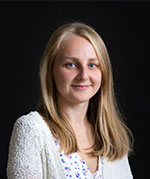
Oksana Katsanivska
Lecturer
Office: Swart 308
Email: katsanivskao@uwosh.edu
Office Hours/Fall 2023: Monday 3:00PM-4:00PM or by appointment
Education:
M.A. in Philology/ Linguistics, Chernivtsi National University, Ukraine
Oksana Katsanivska is a certified linguist, specializing in English-Ukrainian translation. She has worked as a translator of non-fiction literature (including Living Forward by Michael Hyatt and Daniel Harkavy, Onward by Howard Schultz, The IKEA Story by Bertil Torekull, Born to Run by Christopher McDougal, and Unlimited Memory by Kevin Horsley) and as an interpreter for Dr. Jordan Karsten during his archeological excavations in Ukraine. She has also conducted private lessons of English language for adults and teenagers.
Oksana Katsanivska teaches classes on comparative linguistics, food anthropology, contemporary Ukrainian literature and Russo-Ukrainian conflict.
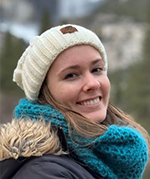
Kayla Kubehl
Lecturer
Office: Swart 314
Email: kubehlk@uwosh.edu
Office Hours/Fall 2023:
Education:
M.A., George Mason University
B.S., University of Wisconsin – Oshkosh
Kayla Francis is a biological anthropologist with interests in dental health, life histories, and systemic illness. She has also completed work in public health focusing on trauma, school health, behavioral health, and workforce development. Kayla teaches courses on human skeletal anatomy, forensic anthropology, and biological anthropology.

Dr. Stephanie May de Montigny
Associate Professor
Office: Swart 320
Email: may@uwosh.edu
Office Hours/Fall 2023: Tuesday/Thursday 1:30PM-2:30PM or by appointment
Education:
Ph.D., University of Texas Austin
Stephanie May de Montigny is a cultural anthropologist. Her courses and research interests include Native American studies, kinship, gender and sexuality, ethnohistory, vernacular architecture, and visual art and dance. She also teaches classes on ethnographic methods, American ethnography, and expressive culture.

Dr. Heidi Nicholls
Assistant Professor
Office: Swart 322
Email: nichollsh@uwosh.edu
Office Hours/Fall 2023: By appointment with the option of in person and online. Greatest availability is 1:30PM-2:30PM Tues/Thursday
Education:
Ph.D., University at Albany, SUNY
M.A., Cleveland State University
Dr. Heidi J Nicholls is a cultural anthropologist with a specialization on economics and power dynamics. More specifically Dr. Nicholls looks at the social construction of race, intercultural dynamics, student success, tourism and equity, diversity, and inclusion. She has had the opportunity to work on the Dine Reservation, in Guatemala, Costa Rica, Anguilla, New York and here on the UWO campus (Inclusivity at a PWI). Dr. Nicholls teaches classes on Diversity, Tourism, Indigenization, Political Resistance and more, counting for programs such as Anthropology (of course), Indigenous Studies, Environmental Studies and Economics. Ask her today how to earn these majors, minors, and certificates!
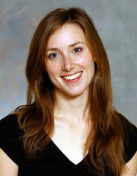
Dr. Stephanie Spehar
Associate Professor
Office: Swart 313
Email: spehars@uwosh.edu
Office Hours/Fall 2023:
Education:
Ph.D., New York University
M.A., New York University
B.A., California State University Los Angeles
Stephanie Spehar is a physical anthropologist whose area of specialization is primate socioecology, or how ecology and the environment have shaped primate social systems and behavior. Within this framework, her research focuses on primate mating systems, group dynamics and social behavior, and communication. A second major research interest is primate conservation, especially the effect of habitat alteration, fragmentation, and hunting on primate communities.

Dr. Choua Xiong
Assistant Professor
Office: Swart 323/ Sage 3444
Email: xiongc@uwosh.edu
Office Hours/Fall 2023: Mondays 10:00AM- 12:00PM in SAGE 3444
Education:
Ph.D., University of Wisconsin-Madison
M.A., University of Wisconsin-Madison
Dr. Choua P. Xiong is an Assistant Professor of Hmong Studies who offers a range of courses in Hmong studies, education, and anthropology that examine issues of displacement, race, gender, and community building. Choua’s research approach is informed by her activism as an educator in Southeast Asian community-based educational spaces, schools, and higher education. She leads various community-based participatory action research (CBPAR) projects that center the perspectives of minoritized people in education including the National Science Foundation (NSF) STEM Undergraduate Education for Minoritized Students Project, MN Lub Zej Zog Education Coalition, and the Los Tsev: Cia Siab, WI Traveling Exhibit.
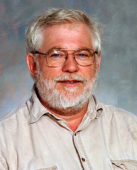
Dr. Jeffrey Behm
Professor Emeritus
Email: behm@uwosh.edu
Education:
Ph.D., University of Wisconsin-Madison, Dissertation title: Identification and Analysis of Stylistic Variation in Hardin Barbed Points
M.A., University of Wisconsin-Madison
B.A., University of Wisconsin-Oshkosh
Global Religions
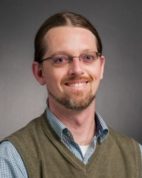
Dr. Michael Baltutis, Chair
Associate Professor
Office: Swart 309
Email: baltutim@uwosh.edu
Office Hours/Fall 2023: Monday/Wed/Friday 12:40PM-1:40PM or by appointment
Education:
Ph.D.,University of Iowa 2008, Religious Studies
B.A.,University of Wisconsin Milwaukee, Philosophy
Dr. Michael Baltutis is an Associate Professor of Global Religions at the University of Wisconsin Oshkosh. He teaches Religious Ritual, Hinduism and Religion in South Asia.
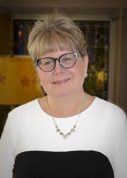
Dr. Kathleen Corley
Professor Emeritus
Email: corley@uwosh.edu
Education:
Ph.D., Claremont Graduate School, Claremont, CA
Dr. Kathleen Corley is a Professor of Global Religions at the University of Wisconsin Oshkosh. She teaches New Testament, Christianity, Gnosticism and Women in Religion.
